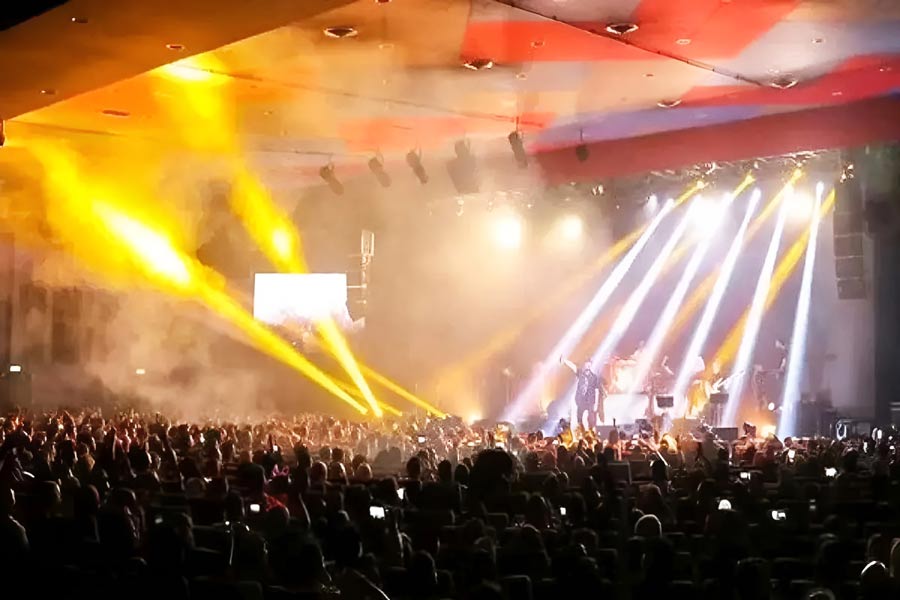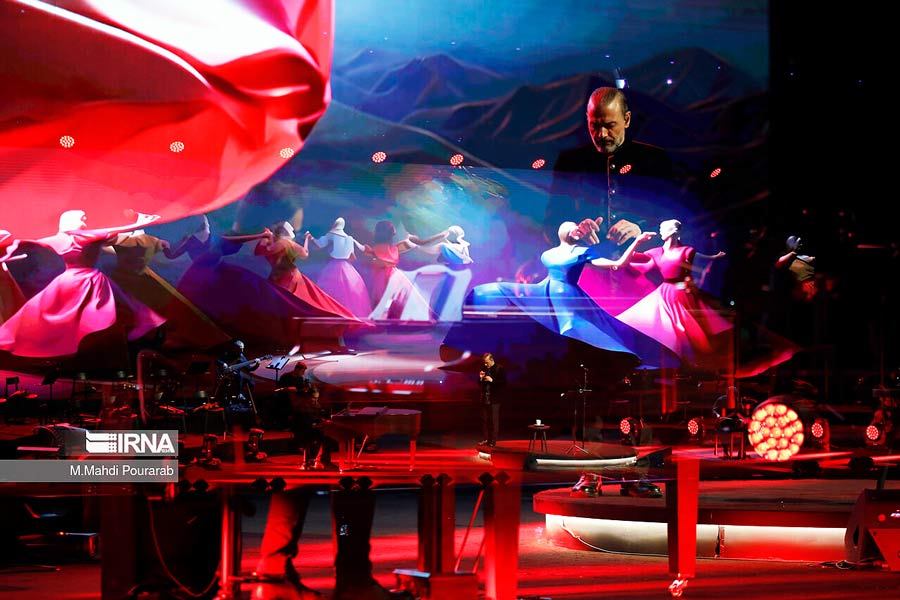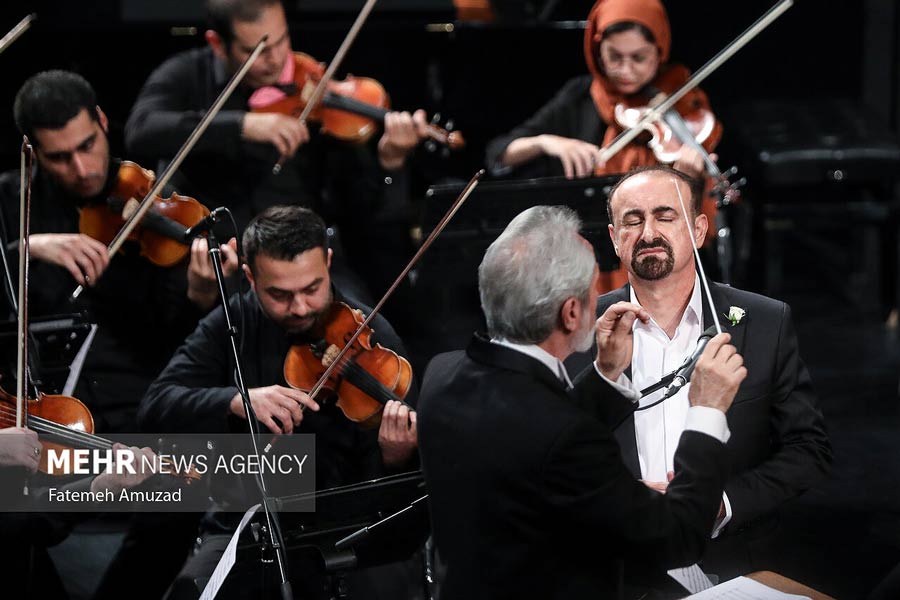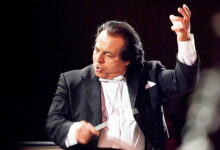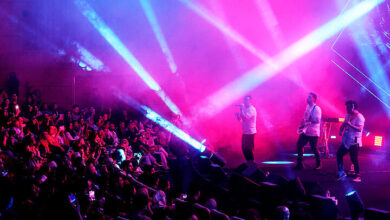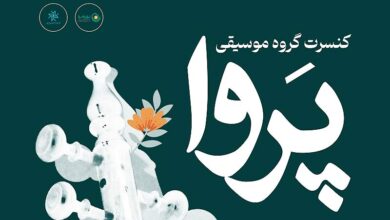The brilliance of women in Vahdat Hall
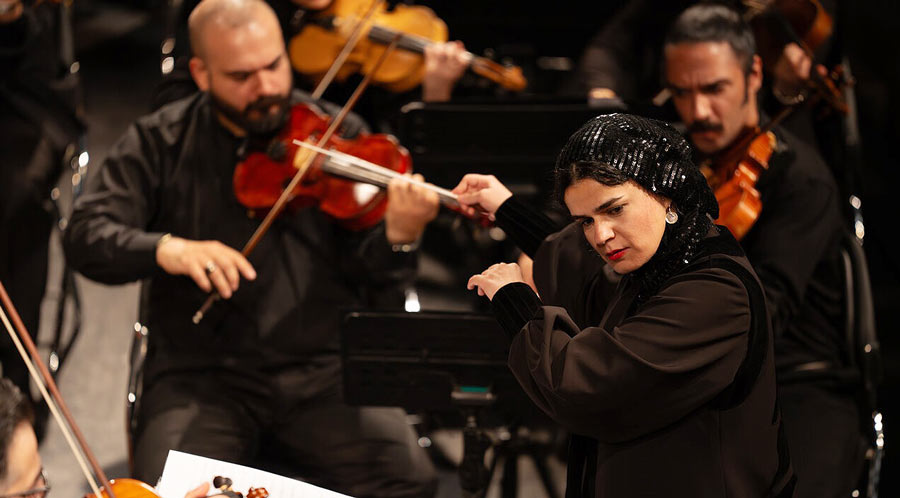
For the first time, the Tehran Symphony Orchestra took to the stage of Vahdat Hall under the leadership of a female musician, and Paniz Faryousefi, alongside Pedram Faryousefi as violin soloist, gave a different and well-received performance.
According to Artmag.ir, the Tehran Symphony Orchestra concert was held on the nights of November 12 and 13, conducted by Paniz Faryousefi, with works by Iranian female composers alongside pieces by the world’s great classical music figures. Over the two nights, Vahdat Hall hosted a passionate audience that followed the performance with unparalleled silence and concentration.
Starting with Sibelius and continuing with works by Iranian composers
The concert began with the string ensemble performing Jean Sibelius’ “Impromptu Opus 5.” After that, the orchestra moved on to works by two prominent Iranian composers, Gulfam Khayyam and Aftab Darvishi.
First, Gulfam Khayyam’s pieces “Simorgh” and “Zamzameh” were played, and then Pedram Faryousefi came on stage as a violin soloist to perform Aftab Darvishi’s piece “Diar” with the orchestra. After performing their works, both composers came on stage at the invitation of the conductor and were applauded by the audience.
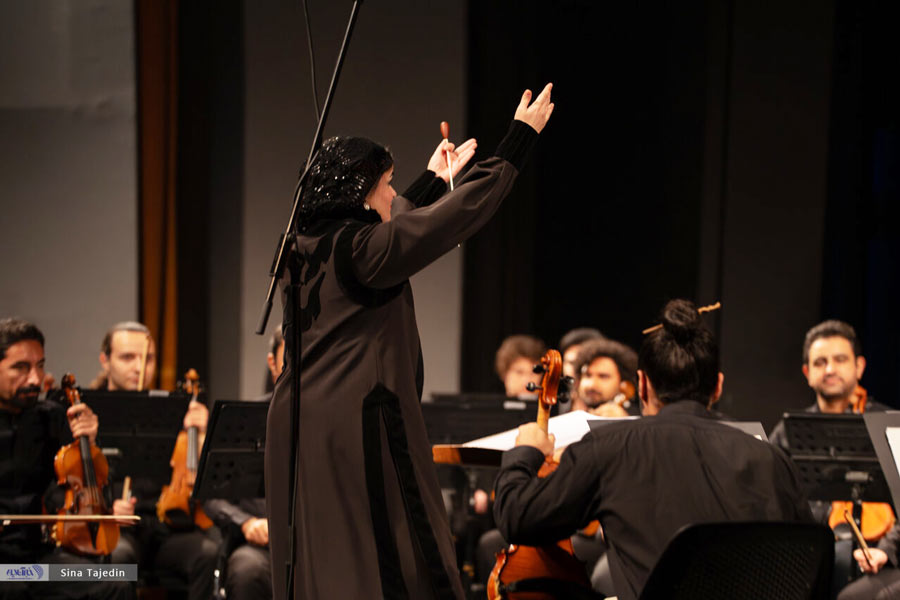
Brilliant performance of Schubert
Next, with all the musicians joining in, the second part of the concert was dedicated to the performance of Franz Schubert’s “Unfinished Symphony, No. 8 in C Minor.” The performance of the two movements “Allegro Moderato” and “Andante con moto” was accompanied by the audience’s unparalleled support, and the orchestra’s resonance was doubly evident in the silence and concentration of the audience.
A Shocking Ending with “Sword Dance”
The final note of the concert was dedicated to “Sword Dance” from the ballet “Gayane” by Aram Xačatryan; an energetic piece that, with a different rhythm than the rest, gave the hall more excitement and enthusiasm and ended the performance at a climax.
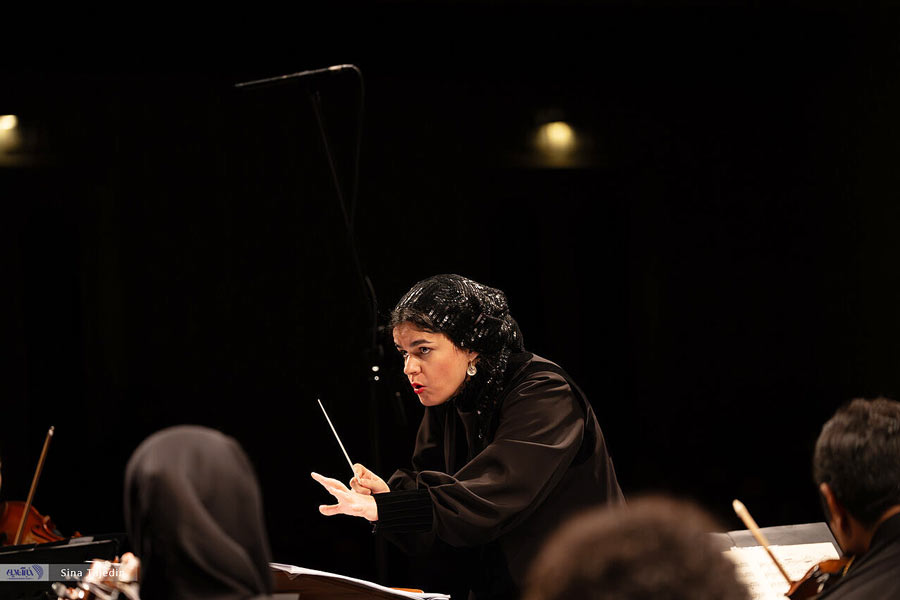
Acknowledgements and Closing Remarks
At the end of the performance, Paniz Friyosefi thanked the orchestra musicians, the management of the Roudaki Foundation, and the Foundation’s Artistic Council for the trust they placed in her to lead the orchestra, and said: “I would like to express my special gratitude to Mr. Nasir Heydarian, who stood by me and the orchestra in a fatherly and compassionate manner and ensured that this program was performed in the best possible way.” She dedicated the performance to all mothers and women in Iran, and especially to her own mother.
Then, Nasir Heydarian, appearing on stage, emphasized the importance of trusting the younger generation and said: “I am very happy that the directors of the Roudaki Foundation created this opportunity. The world should be gradually handed over to the young. The maternal feelings and artistic tenderness of female musicians are undeniable, and last night and tonight, the audience heard this tenderness in the orchestra.”
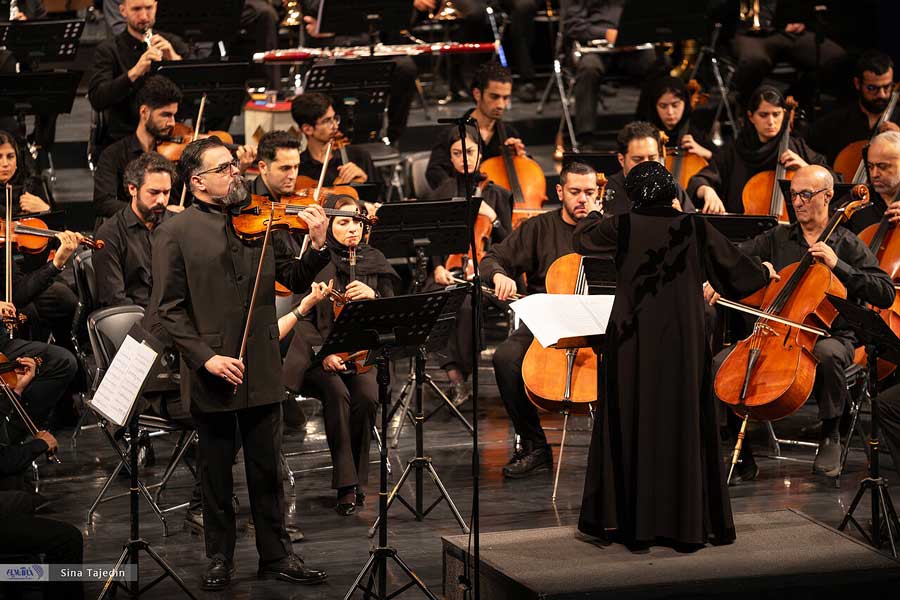
At the end of the second night, the Roudaki Foundation‘s plaque of appreciation and gift were presented by Nasir Heydarian to Paniz Fariyousi, Farimah Ghavam Sadri to Aftab Darvishi, and Rafael Minaskanian to Gulfam Khayyam.
Artists such as Mohammad Reza Darvishi, Rafael Minaskanian, Farimah Ghavam Sadri, Nasir Heydarian, Mani Jafarzadeh, Mohammad Reza Tafazzoli, Kiavash Saheb Nasagh, Shahla Milani, Aftab Darvishi, Golfam Khayyam, Behnaz Zakeri, Ebrahim Lotfi, Clara Bukochava, Babak Chamanara, Behnam Abolghasem, Jabiz and Golriz Zarbakhsh, Nasrin Nasehi, Mina Oftadeh, Behzad Abdi, Hospik Karapetyan, Pouria Akhavas, Amin Ghaffari, Negar Kharkan, along with Zahra Behrouz Azar, Vice President for Women and Family Affairs, Mohammad Allahyari Foumani, CEO of the Roudaki Foundation, Babak Rezaei, Director General of the Music Office of the Ministry of Culture and Islamic Guidance, Amir Abbas Setayeshgar, Deputy Director of Artistic Creations of the Rudaki Foundation, and Eshaq Shokri, CEO of the Iran Music Association watched the performance of the Tehran Symphony Orchestra on these two nights.
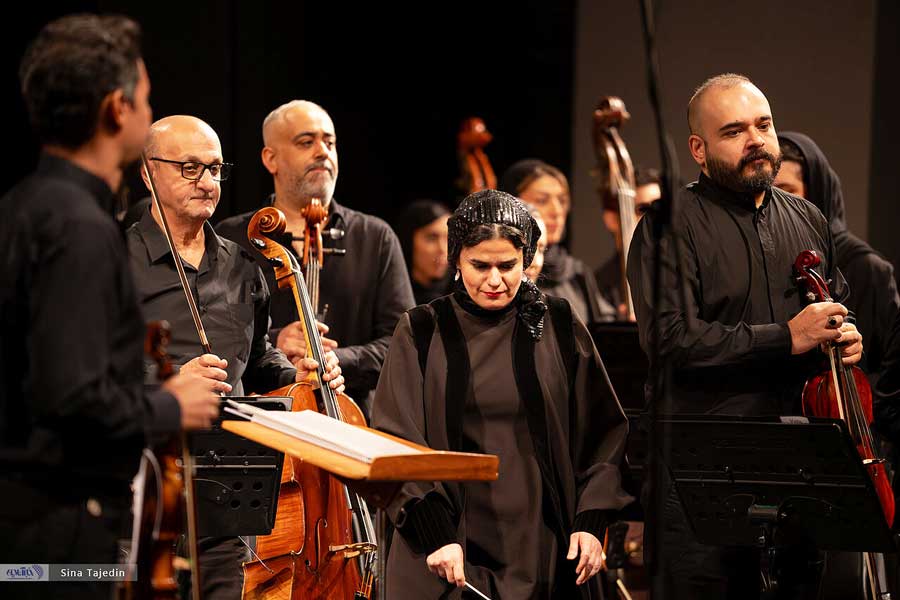
Mohammad Reza Karimi (Concertmaster), Farzad Seyyedi, Ehsan Shami, Erfan Sharifzadeh, Farmehr Hassanbeyglou, Hooman Jalalat, Sina Salehi, Farid Zakeri, Hooram Torabi, Hassan Maleki, Sajjad Salehabadi, Anahita Azimi, Sara Ghasemi, Kourosh Alimohammadi, Dorsa Minasazi, Parsa Moeini (violin 1), Monica Loran, Mahvash Asgari, Peyman Shami, Erfan Vakili, Sara Bayramzadegan, Mojan Mirzaei, Alireza Golestaneh, Malika Zadeh Mohammadi, Sina Eftekharnia, Farnaz Zandiyeh, Erfan Javidnia, Amir Mahziar Ghasemi (violin 2), Amin Zamankhan, Pejman Ekhtiari, Athena Zanganeh, Zahra Abdollahzadeh, Masoud Pourbakht, Arian Zamani, Rosha Gavahi, Fargol Saket, Elham Aghababaei, Bahar Brahimi (viola), Majid Esmaeili, Makan Khoinejad, Kianmehr Keshavarz, Behrang Motamedi, Zahra Ketabi, Helia Pourkarimi, Rojan Fallah Bordbar, Hasti Alizadeh, Parsa Hadi, Hamoon Ghaderi (cello), Mehdi Kalantari, Parvaneh Anaraki, Mohammad Reza Jabbar, Ava Pooya Kashani, Kourosh Maleki, Nazanin Ahmadi, Setareh Namvari Rad (double bass) were among the musicians in the “Diyar Simorgh” concert.
Also featured Mahsima Fallahi, Farzaneh Asadi (flute), Faraz Farastpour (piccolo), Arian Gheytasi (oboe, saxophone), Nazanin Ahmadzadeh (oboe, clarinet), Minelli Danlian, Pegah Valikhani (clarinet), Roham Irankhah (bass clarinet), Alireza Motavaseli Darab, Farshad Mohammadi (bassoon), Fatemeh Yousefinejad, Rozhina Sadeghi, Hooman Baghi, Amirhossein Gorgin (horn), Ali Zarrabi, Kamyar Mandegarian (trumpet), Sepehr Abbasi, Arian Khodayar (trombone), Ramin Barati (bass trombone), Babak Mirdadian (tuba), Diba Vali (harp), Seyyed Arman Seyyed Fattahi (piano), Erfan Farshizadeh (timpani), Mahan Babri, Mahyar Montazem Seddighi and Dian Ghadiri (percussion), was other musicians from the Tehran Symphony Orchestra in this concert.


